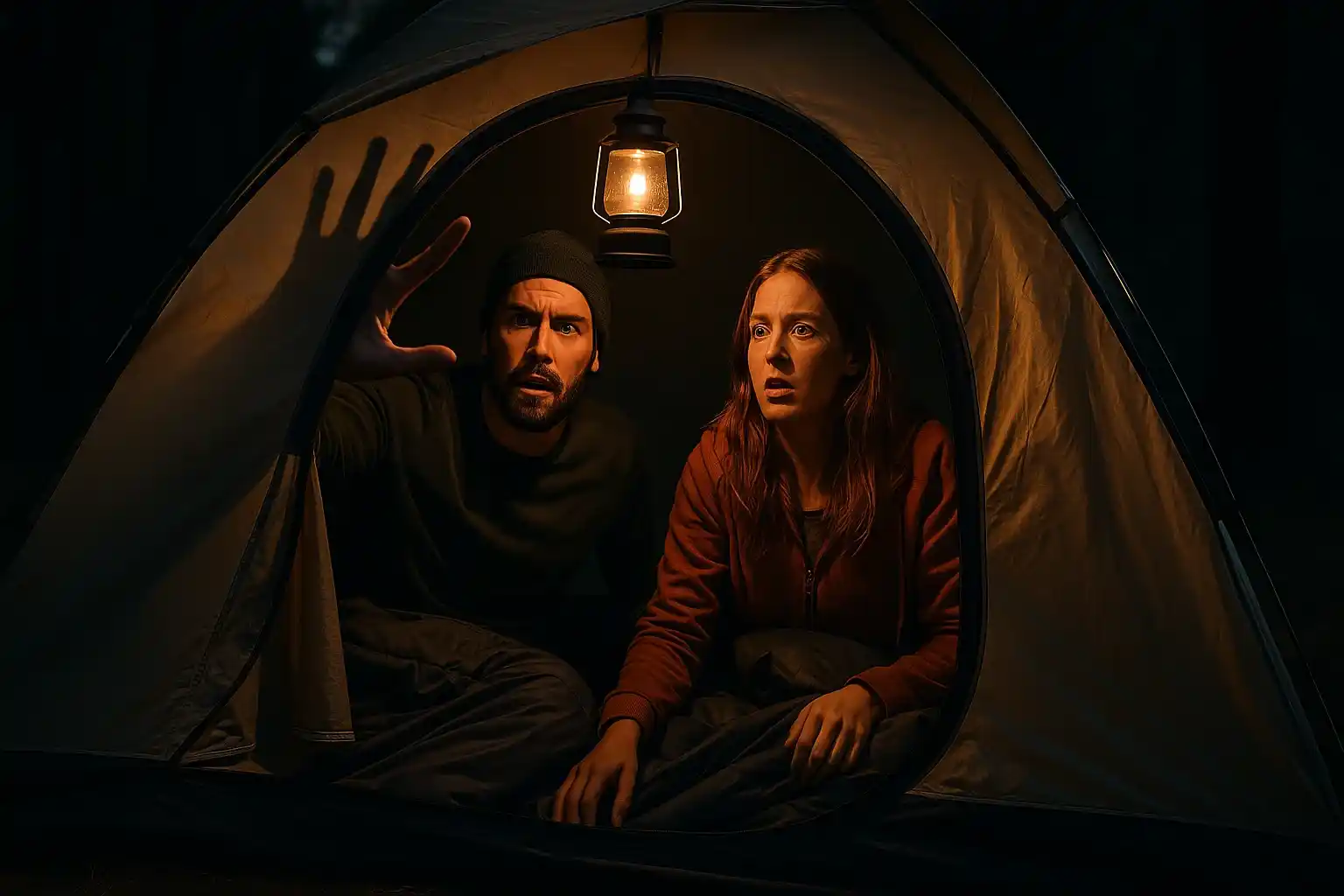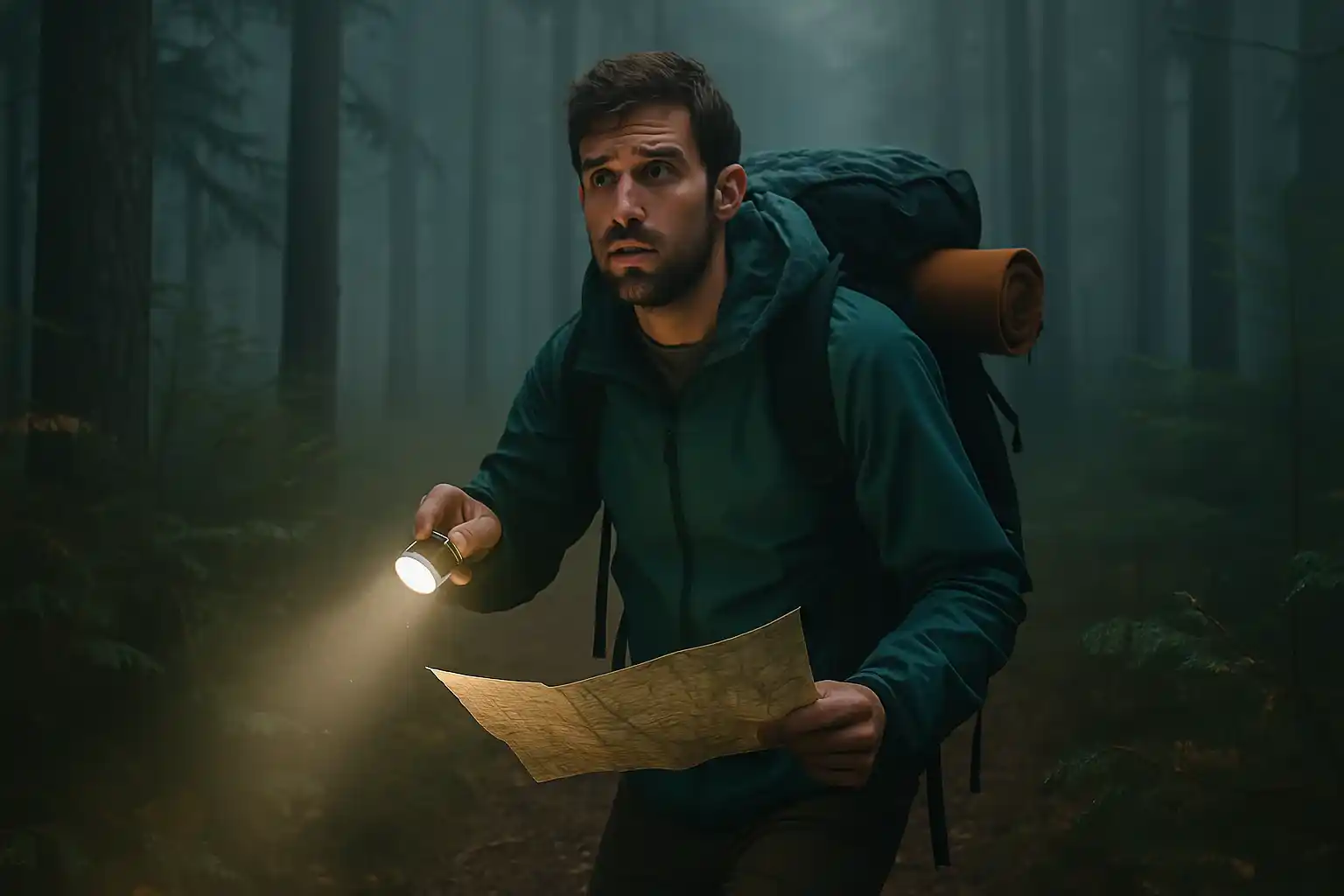Just close our eyes and dream a little. What is the first thing that comes to your mind when you hear the word “camping”? Most often camping is associated with the crunch of a fire, the smell of pine, silence and a feeling of complete freedom. But, as practice shows, even the most idyllic trip can turn out to be a disturbing story – if elementary safety steps are not taken into account. The statistics of rescue services confirms: many emergencies occur because tourists make mistakes like neglecting signals, choosing the wrong place, or not communicating with the dearest of their location.
That is why today we will discuss several real stories of campers who found themselves on the brink and sort out what lessons should be drawn from them for everyone who is going into the woods. Nothing excessive, only practical advice on what to do in potentially dangerous situations and how to prepare for camping in advance, so that loved ones can track phone numbers away from civilization, and you were always safe. Let us start here.
Real Camping Nightmares
Unfortunately, none of us is immune to some troubles or even disasters on camping trips, which are often unpredictable. Below you will be able to find some real examples of unpleasant events that happened while camping. What are these for? So that you can learn from their mistakes. By the way, another good news is that all these troubles can be avoided if you prepare properly.
- “Night Visitors” (USA, 2017)
In 2017, a couple camping in a remote forest in the US heard someone trying to break into their tent at night. They remained silent, hoping the intruder would leave. In the morning, they discovered strange grooves in the fabric of the tent, but no signs of a break-in and no sign of the intruder. The couple was left terrified, as they are not sure whether someone followed them or if it was just a prank, so the incident is still a mystery, but the fear it instilled is undeniable.
Lesson: Always choose your camping spot carefully. Make sure it is in a well-lit area with good visibility, and avoid sites near hiking trails or other areas where strangers may wander. Keep your tent securely zipped up, and use a lock or security system for added protection. And if possible, don’t stay in unintended or very deserted areas.

- Katrina Pfeiffer (Germany, 2006)
In 2006, Katrina Pfeiffer and her companions were hiking in the German Alps when a fatal bear attack occurred. In fact, this meeting was the first fatal encounter with a bear in the region in more than a century. Despite all precautions and human attempts to avoid the unpleasant encounter – storing food away from the tent and making noise to scare the animals away – the bear still reached the tent in the middle of the night. Unfortunately, this attack ended with the death of Katrina and raised some questions like “Is camping in bear-infested areas still safe even with all precautions?”
Lesson: Always be mindful of the wildlife in your area. If you are camping in bear country, follow all safety rules: store food securely, use bear-proof containers, and know what to do if you encounter a bear. Be sure to research the wildlife in the region where you will be camping and take the necessary precautions.
- The Lind Family (Norway, 2021)
In 2021, the Lind family experienced a terrifying event when their campsite in Norway was flooded due to a sudden rise in river water. The family was able to leave the campsite as their tent and belongings were swept away by the powerful flood. They managed to save themselves due to reaching the higher ground, but the event was a stark reminder for you: always remember how quickly weather conditions can change in the wilderness.
Lesson: Always check the weather forecast before heading out. Avoid camping near rivers or areas prone to flooding, especially if you are unfamiliar with the terrain. But the most important thing here is knowing where the high ground is and your backup plan in case of emergencies, which can literally be life-saving in these situations.
- Anonymous Case (Canada, 2022)
A teenager in Canada went out to collect firewood from the campsite in 2022 and never returned. His family started to worry after several hours and began searching for him and found him in a state of shock the next morning. He had gotten lost and couldn’t contact anyone because his phone had run out of battery and there was no signal. Fortunately, he was found safe, but this event could also have some dire consequences.
Lesson: Always keep your phone charged, and bring a portable charger if necessary. Additionally, make sure you have backup communication methods, e.g., walkie-talkies or a satellite phone, especially if you are camping in remote areas with no signal. And always create clear plans with your group about when and where you will check in.
What to Do If…
When you go on a wilderness camping trip, it’s not just about enjoying nature. It’s also the need to stay alert, be prepared, and know what to do when things don’t go according to plan. While many people think of the excitement and beauty of a wilderness vacation, it’s the unexpected moments (such as strange noises or the realization that you’re being followed) that can turn a peaceful trip into a nightmare. Here are a few key actions to take if you ever find yourself in such a situation.
You Hear Suspicious Noises Outside Your Tent:
It’s every camper’s worst fear: hearing a noise outside your tent when you’re alone in the woods. It could be an animal, or it could be someone trying to get you: no matter what it is, your first instinct may be to stay completely silent, but that can make things worse. Here’s what you should do:
- Don’t go outside blindly. Seriously, first you need to stay calm and then turn on a flashlight. Shine it around your tent and make some noise, such as tapping the kettle or calling out to someone. Sometimes just the sound alone can make an intruder or animal realize they have been spotted and back off.
- Don’t be silent: if you are not alone, exchange short phrases with your hiking companions, even if they are just fake ones, to give the impression that you are not isolated. This tactic can create a sense of security and discourage anyone or anything from reaching you further.
- Use your phone’s loud mode to activate an alarm app that could help alert anyone nearby, or even scare away an animal. It is always better to err on the side of caution.
You See Signs of Being Followed
If you feel like someone is following you, trust your instincts and act fast. Be it someone from a nearby campsite or an unknown stranger, the feeling that the one chasing you can be an unnerving experience. So you may ask: what to do?
First of all, take photos of the tracks or any marks left behind and immediately record your coordinates – this could be vital if you need to prove your location or share your whereabouts with someone. Then immediately change your campsite location. If possible, pack up and move to a more populated or open area where you have a better chance of getting help. And last but not least rule is to activate geolocation and share your coordinates with a trusted friend or family member before you start your trip. For example, the Number Tracker app is great for sharing your precise location, so that your loved ones are aware of your exact whereabouts, even if you are in an area with poor signal.
And please remember don’t ignore your gut feelings. Document the situation and always stay connected through apps or communication methods. In a crisis, even small details can help keep you safe.

You Get Lost or Separated from Your Group:
One of the most common fears while camping is getting lost, especially in unfamiliar or remote areas. The wild nature is vast, and it is easy to lose track of your surroundings. If you get lost or separated, follow these steps:
- Stay put and keep calm. The instinct might be to keep moving, but that can make things worse. Due to staying in one spot, you make it easier for others to find you.
- Use your phone to send your current coordinates via a messenger app or tracker if you have a signal. If you don’t, save your location information for when you have the chance to reconnect.
- Make an improvised beacon. You can use a reflective item like a mirror, a flashlight, or even a fire (only in case it’s safe to do so) to create a visual signal. In remote areas, a beacon can guide rescuers to you.
Traveling into the Unknown
Camping is not just about campfires, starry skies and freedom. It’s also about the skill of survival, where the price of a mistake can be too high. The forest does not forgive carelessness, but respects preparation, so set out for adventure, but don’t forget: the worst story is the one that you are able to avoid.

